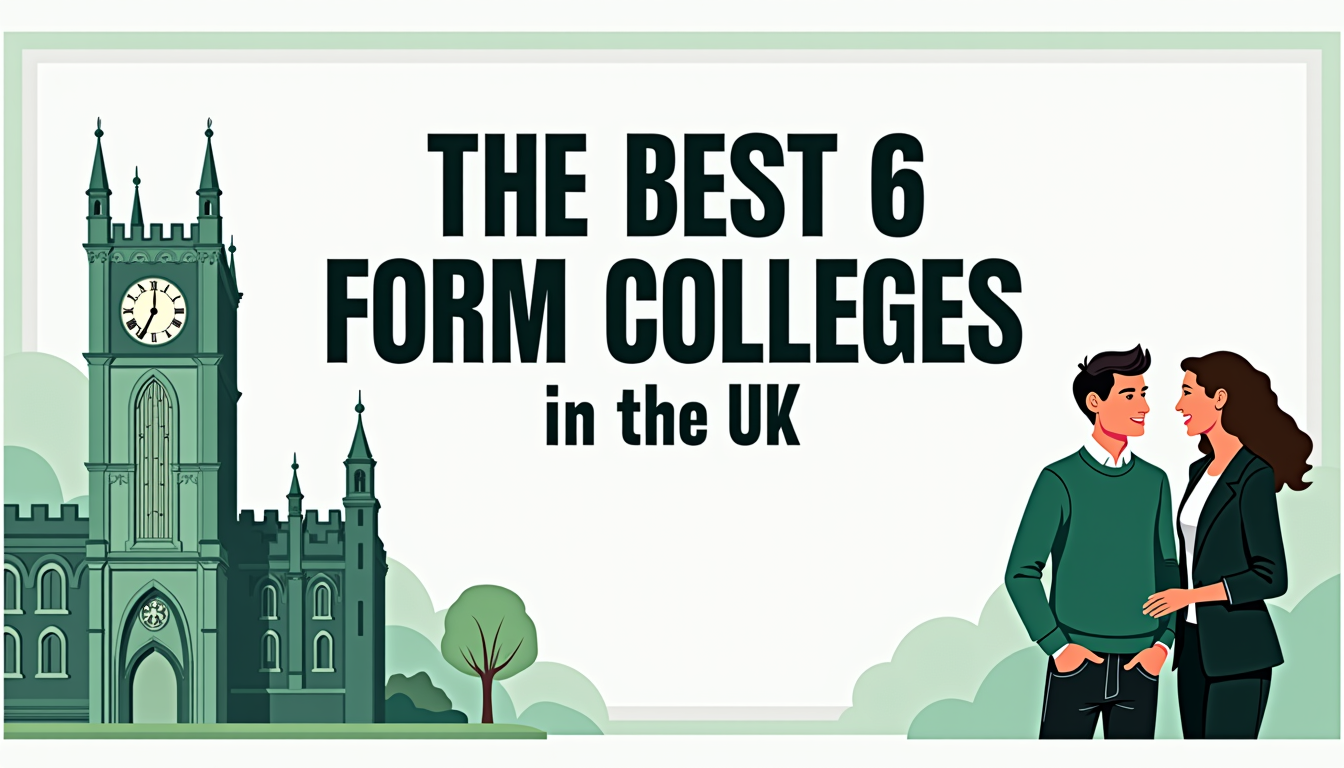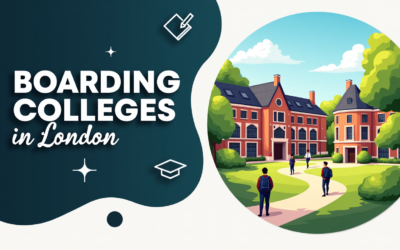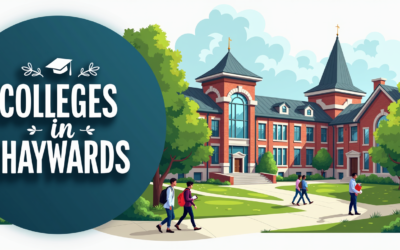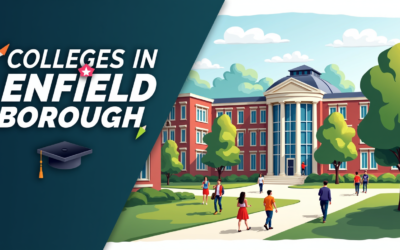Choosing a sixth form college is a crucial step in preparing for higher education. With so many options available across the UK, it can be tough to know where to begin. This post highlights the best six form colleges, showcasing what makes them stand out.
Sixth form colleges play an essential role in helping students transition from school to university. They offer tailored A-level courses that equip students with the knowledge and skills needed for further education. This guide will simplify your search, providing insights into the top colleges based on key factors like academic performance, facilities, and support services.
Whether you’re looking for a strong academic environment or unique extracurricular activities, our recommendations will help you identify the best fit for your aspirations. Let’s explore the top contenders that could shape your future. Discover the best sixth form colleges in the UK and set the stage for your academic success.
For a bit of extra insight, check out this video on YouTube: Should I go to college or sixth form?.
Overview of Sixth Form Colleges in the UK
Sixth form colleges are educational institutions that focus exclusively on students aged 16 to 18. These colleges serve as an essential bridge between secondary school and higher education, providing specialised courses that prepare students for A-levels or equivalent qualifications. Unlike traditional secondary schools, sixth form colleges often have a wider curriculum, enabling students to choose from various subjects that align with their academic and career aspirations.
Definition and Purpose
Sixth form colleges cater to students who have completed their GCSEs and are ready to take on more advanced studies. Their primary aim is to equip learners with the knowledge, skills, and qualifications necessary for university or employment. These institutions often emphasise a more independent learning environment, fostering critical thinking and self-motivation.
Key Differences from Secondary Schools
While both sixth form colleges and secondary schools serve educational purposes, there are notable differences between the two:
Age Group: Sixth form colleges specifically target students aged 16-18, whereas secondary schools serve a wider age range from 11-16.
Curriculum Flexibility: Sixth form colleges usually offer a greater variety of subjects and qualifications, including A-levels, BTECs, and vocational courses. This flexibility allows students to tailor their education to fit their interests and career goals.
Learning Environment: The atmosphere in sixth form colleges tends to be more adult-oriented, promoting independence. Students are expected to take greater responsibility for their learning, which can be beneficial in preparing for university life.
Size and Structure: Many sixth form colleges are larger than school sixth forms and can accommodate hundreds or even thousands of students. This can create a dynamic environment with more extracurricular opportunities and resources available.
Support Services
Sixth form colleges are well-equipped to support students on their academic journey. They typically offer a range of services, including:
Academic Guidance: Dedicated tutors and mentors work with students to provide advice on course selection, university applications, and career planning.
Extracurricular Activities: To enhance student life, many sixth form colleges provide clubs, societies, and sports teams, fostering a sense of community and promoting personal development.
Resources: Libraries, study areas, and IT facilities are often more extensive than those found in secondary schools, enabling students to access the tools needed for academic success.
Navigating the transition to higher education can be daunting. Understanding the distinct features of sixth form colleges is crucial as you consider your options. With the right support and environment, you can set the foundation for a successful future.
Criteria for Selecting the Best Sixth Form Colleges
Choosing the right sixth form college can significantly impact a student’s future. Several key criteria can help simplify this decision. By focusing on these aspects, you can determine which institution aligns best with your goals.
Academic Performance
Academic results are a fundamental criterion. Colleges with a strong track record of A-level results generally indicate robust teaching standards. Look into:
- Pass Rates: Research the percentage of students achieving high grades.
- Leagues Tables: Check national rankings for specific subjects or overall performance.
- Success Stories: Investigate if alumni have progressed to top universities or career paths.
Understanding a college’s academic performance can offer insight into the quality of education you can expect.
Course Availability
The range of courses offered is crucial. Different colleges may specialise in various subjects or qualifications beyond A-levels. Consider:
- Subject Choices: Ensure the college offers the subjects you’re passionate about.
- BTEC and Vocational Courses: Evaluate the availability of alternative qualifications if that appeals to your educational style.
- Flexibility: Look for institutions that allow combinations of different courses to suit your aspirations.
A well-rounded curriculum can provide you with a comprehensive educational experience.
Student Support Services
Effective support systems can enhance the student experience significantly. Investigate what services are available:
- Academic Advising: Access to mentors who guide you through choices can be invaluable.
- Pastoral Care: Emotional and mental well-being support ensures a balanced college life.
- Career Services: How colleges assist with university applications or job placements can influence your future opportunities.
A supportive environment empowers students to thrive academically and personally.
Facilities and Resources
The facilities available at a college play a vital role in your learning experience. Examine:
- Libraries and Study Areas: Access to study materials is essential for academic success.
- IT Resources: Modern technology and well-equipped computer labs can enhance your learning.
- Extracurricular Facilities: Sports, arts, and clubs can enrich your college experience and foster personal growth.
Quality facilities can enhance not only education but overall college life.
Location and Environment
The location of the college can impact your day-to-day experience. Consider:
- Proximity to Home: Is commuting manageable? Look into transport links.
- Urban vs. Rural Settings: Which environment best suits your lifestyle and learning preferences?
- Community Atmosphere: A welcoming community can make a significant difference in your college experience.
Choosing the right location supports a balanced and enjoyable life during your studies.
By focusing on these criteria, you can make an informed choice when selecting a sixth form college. The right fit will provide a solid foundation for your academic and personal development, setting you up for future successes.
Top 6 Sixth Form Colleges in the UK
Selecting the right sixth form college is a significant step towards your higher education. Below, we explore six of the best sixth form colleges in the UK, each known for their unique offerings and exceptional student outcomes.
Cardiff Sixth Form College
Cardiff Sixth Form College consistently excels in academic performance. This college boasts impressive statistics, with 92% of students gaining admission to Russell Group universities. In recent years, over 90% of students achieved A* or A grades in their A-levels. What sets this college apart is its focus on personal development, which is highlighted in student testimonials. Many graduates attest to the supportive environment and comprehensive guidance, which have been crucial in their successful university applications. The college’s dedication to academic excellence is evident in its continuous top rankings nationally.
Westminster School
Westminster School is steeped in history, having been established in 1560. This prestigious school boasts state-of-the-art facilities that cater to academic and extracurricular needs. Notable alumni include multiple Nobel laureates and influential figures in politics, science, and the arts, underscoring the school’s reputation for excellence. The rich history adds to its allure, providing a unique backdrop for education. Additionally, the school offers a variety of activities and clubs, fostering a well-rounded educational experience.
St Michael’s Catholic College
St Michael’s Catholic College prioritises community and inclusivity. The college offers a range of academic programs, including A-levels and vocational courses, ensuring that students can pursue their interests. Students enjoy various extracurricular options, from sports teams to art clubs, fostering personal development and social skills. The college’s commitment to nurturing a supportive environment helps students thrive, enhancing their educational experience while building lasting friendships.
King’s College London Maths School
King’s College London Maths School is dedicated entirely to mathematics and related subjects. With an emphasis on A-levels in Mathematics and Further Mathematics, students are provided with a robust curriculum that prepares them for university-level studies. The school’s partnership with King’s College London offers students unique resources and exposure to the latest developments in mathematical research. This specialised focus attracts students who are passionate about STEM subjects, allowing them to explore their interests deeply.
Newham Collegiate Sixth Form Centre
Inclusivity is at the heart of Newham Collegiate Sixth Form Centre. Known for its support of diverse learners, the college provides tailored assistance to ensure that all students succeed. This sixth form offers a range of courses, including A-levels and vocational pathways, allowing students to tailor their education to their goals. The environment encourages personal growth and fosters a sense of community among students. Recognised by Ofsted as outstanding, the college is committed to providing a supportive atmosphere that empowers its learners.
London Academy of Excellence
The London Academy of Excellence stands out for its rigorous academic standards. A remarkable 32% of grades achieved by students were A*, with 72% being A* or A. The academy also has strong partnerships with various universities, enhancing students’ opportunities for higher education. Celebrated for its academic achievements, the academy emphasises personal growth alongside educational success. With a co-curricular programme that complements academic learning, students are well-prepared for their next steps in education and beyond.
These colleges not only focus on outstanding academic results but also provide enriching experiences that help shape well-rounded individuals. Exploring the unique qualities of each institution can help you decide which sixth form college aligns best with your ambitions.
Comparison of Facilities and Student Support
When selecting a sixth form college, one cannot overlook the importance of facilities and student support services. These elements serve as the backbone of a student’s educational experience, significantly influencing academic success and personal growth.
Facilities Overview
The physical environment within which you learn can greatly affect your studies. Top sixth form colleges provide various facilities that cater to academic and extracurricular needs. Here’s what you can typically expect:
Libraries: Well-stocked libraries are essential for independent study. They offer a range of resources, including textbooks, journals, and digital materials. Comfortable study spaces can also enhance focus and productivity.
Laboratories: Colleges focused on sciences generally boast modern laboratories equipped with the latest technology. This allows students to engage in hands-on experiments, which is invaluable for learning complex concepts.
IT Facilities: Access to computers and specialised software is crucial for research and assignments. Many colleges ensure that their IT resources are up-to-date, enabling students to utilise the tools needed for success in today’s tech-driven world.
Study Areas: Designated study spaces, often designed for group work or quiet study, foster collaboration and personal reflection. Comfortable seating and ample lighting create an inviting atmosphere for learning.
Sports and Recreational Areas: Many colleges invest in sports facilities, through which students can engage in physical activities. This promotes a well-rounded education, where physical health is as important as academic achievements.
Student Support Services
Support services are equally important as they nurture students throughout their college journey. Effective student support can help manage the challenges of academic life.
Academic Guidance: Each student typically has access to personal tutors who offer tailored advice on course selection, study techniques, and deadlines. This guidance can relieve pressure, helping students to stay organised and focused.
Pastoral Care: Emotional well-being is crucial during this transitional phase. Colleges usually have dedicated staff ready to help with personal issues or stress management, ensuring students feel safe and supported.
Career Services: Assistance with university applications and career advice is a cornerstone of student support. These services equip students with essential skills for future employment, including CV writing and interview preparation.
Extracurricular Support: Many colleges encourage involvement in extracurricular activities. Whether it’s joining a club or participating in sports, support staff help students find their passions outside the classroom, contributing to a balanced college experience.
Counselling Services: Many institutions provide access to counselling for any students needing to discuss personal matters. Professional support can be a lifeline for those dealing with tough situations.
The quality of facilities and the level of student support can make all the difference in your educational journey. Choosing a college that prioritises these areas ensures you will receive a well-rounded education tailored to your needs and aspirations.
Testimonials from Students and Parents
Hearing from those who have experienced the journey can make the college selection process more relatable. Testimonials from students and parents provide insight into life at sixth form colleges, showcasing the environments that foster growth, learning, and community. Their stories often highlight what sets each institution apart, offering a glimpse into the unique experiences that await students.
Student Perspectives
Students frequently express how their chosen college has impacted their academic and personal growth. For example:
Academic Excellence and Support: A student from Oxford Sixth Form College stated, “The support from teachers has been outstanding. They genuinely care and go above and beyond to help you achieve your best.” This sentiment reflects the dedication of staff in fostering an environment where students feel valued and motivated.
Sense of Community: At Accord Sixth Form College, a student shared, “I really feel part of a family here. There’s a strong sense of camaraderie among students, which makes the experience much more enjoyable.” This feeling of belonging often enhances students’ motivation and engagement in their studies.
Opportunities for Growth: A V6 student remarked, “Coming to V6 changed my perspective. I had opportunities to explore my interests through extracurricular activities, which made my college life rich and fulfilling.” Such experiences can be just as important as academic achievements.
Parent Insights
Parents often appreciate the supportive environment these colleges provide, as it plays a crucial role in their children’s overall experience.
Commitment to Student Success: A parent of a student at London Academy of Excellence noted, “The staff’s commitment to my child’s success has been impressive. They provide tailored advice and encourage individual development.” Such endorsements highlight the important role that educators play in guiding students.
Safe and Nurturing Environment: A parent from St Michael’s Catholic College shared, “The sense of community and care for students is apparent. I have peace of mind knowing my child is in a supportive environment.” Safety and well-being are paramount, particularly during this transitional stage of education.
Encouragement of Independence: A parent of a King’s College London Maths School student commented, “The level of independence my child has gained here is remarkable. They’ve become more responsible and confident.” Encouraging self-reliance prepares students for the demands of university life.
A Collective Voice
The testimonials from both students and parents reveal a shared appreciation for the commitment, care, and community within these sixth form colleges. From the outstanding academic support to the strong sense of belonging and independence fostered during these formative years, every story contributes to a fuller picture of what each college has to offer. Engaging with these voices can help prospective students and their families feel more confident in their college choices, aligning their values and goals with the right institution.
Conclusion
Choosing the right sixth form college is a pivotal decision that will shape your academic journey. It’s essential to consider various factors to ensure the best fit for your needs and ambitions. Here, we’ll look at some critical aspects that can guide your choice.
Reflect on Your Goals
Think about what you want to achieve. Do you aim for top-tier university placements or specific vocational qualifications? Your aspirations should align with your chosen college’s strengths.
Consider Academic Performance
Investigate the academic results of potential colleges. Are they known for high A-level pass rates? Researching their track record will give you a clear picture of the academic support you can expect.
Review Course Availability
Ensure that the college offers the subjects you’re interested in. A diverse curriculum can make a significant difference in your educational experience, allowing you to explore different fields.
Evaluate Facilities
Quality facilities can enhance your learning experience. Check what resources are available, such as modern libraries, laboratories, and IT support. A conducive learning environment boosts motivation and engagement.
Assess Support Services
Look into the level of student support offered. Effective pastoral care, academic guidance, and career services will help you navigate challenges and make the most of your college experience.
Engage with the Community
The atmosphere within a college can greatly influence your experience. Look for institutions that foster a welcoming and inclusive environment. Personal connections often lead to personal and academic growth.
By examining these aspects closely, you can make an informed choice about the sixth form college that aligns with your ambitions. The right selection will not only enhance your learning but also contribute to your overall development during these formative years.




